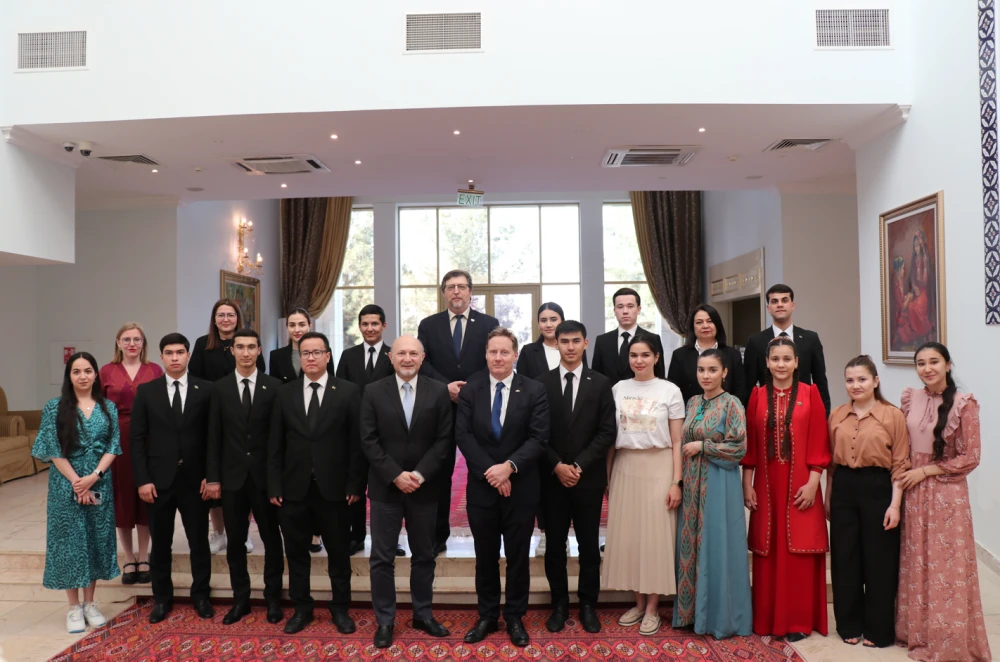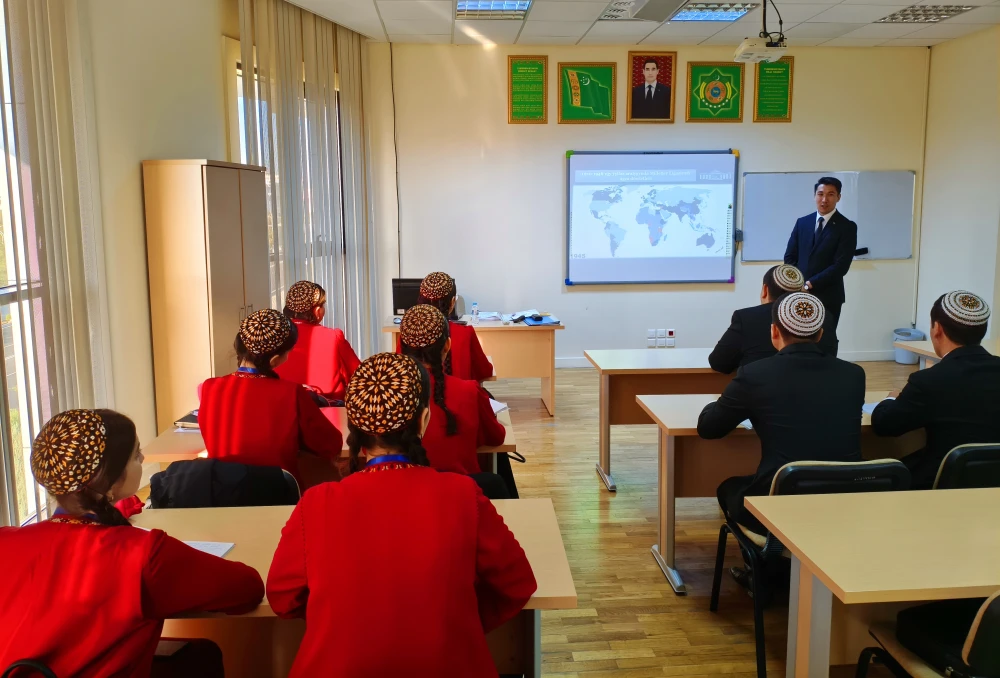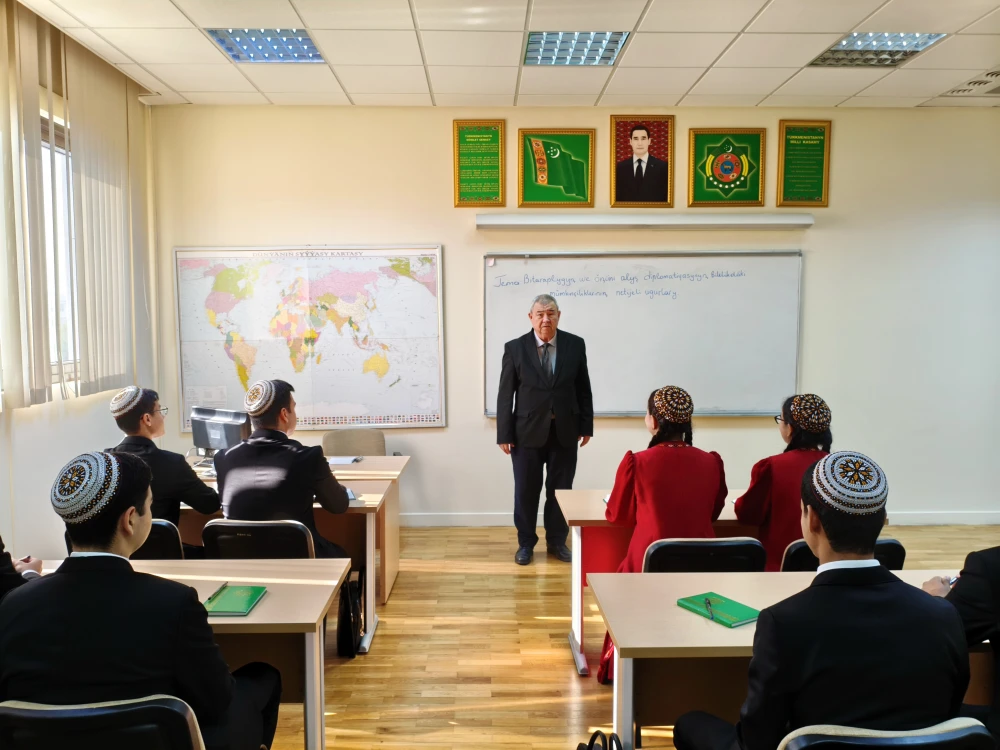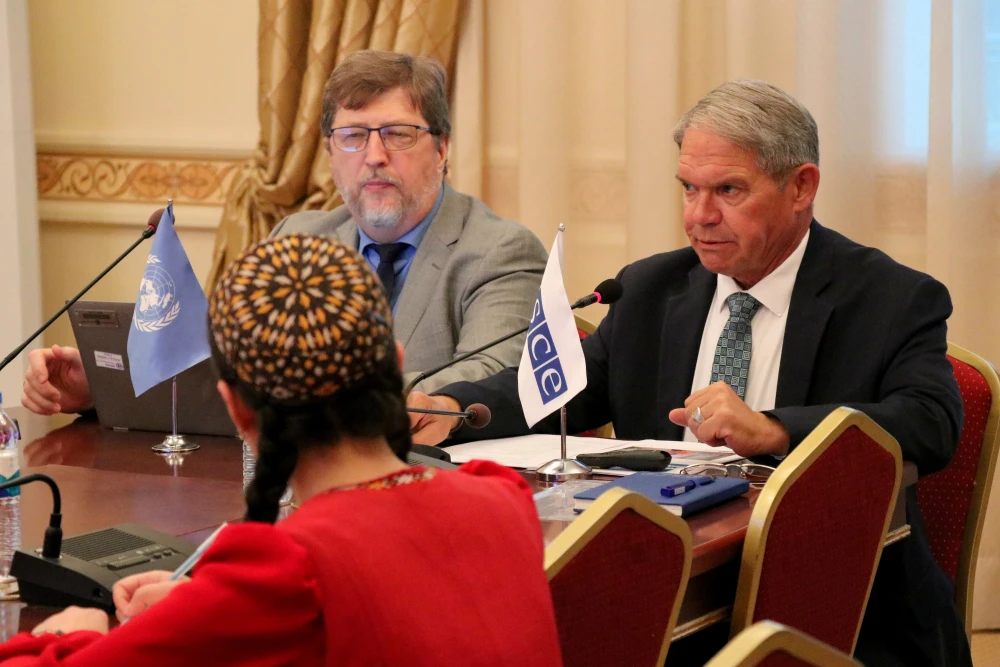30/04/2024
1620
Diplomatic Proficiency: Perspectives from the UNRCCA Preventive Diplomacy Initiatives
In the ever-evolving landscape of international relations, the role of preventive diplomacy has emerged as a crucial tool for fostering peace and cooperation among nations.
To shed light on this the United Nations Regional Centre for Preventive Diplomacy for Central Asia (UNRCCA) and Turkmenistan share a significant history intertwined with efforts to promote peace, stability, and cooperation in the region. Established in 2007 in Ashgabat, Turkmenistan, UNRCCA serves as a platform for dialogue, conflict prevention, and mediation among the Central Asian countries, including Turkmenistan.
Turkmenistan, located in the heart of Central Asia, has played a pivotal role in the establishment and activities of the UNRCCA. From the outset, Turkmenistan has demonstrated a strong commitment to regional cooperation and conflict resolution, making significant contributions to the UNRCCA's initiatives and programs.
Throughout its history, UNRCCA has facilitated numerous diplomatic efforts aimed at addressing regional challenges and promoting sustainable development. Turkmenistan has actively participated in these initiatives, hosting high-level meetings, conferences, and dialogues to foster dialogue and cooperation among Central Asian countries.
One notable aspect of the UNRCCA's engagement with Turkmenistan is its focus on preventive diplomacy. Recognizing the importance of addressing conflicts before they escalate, Turkmenistan has been a strong advocate for preventive measures and has worked closely with the UNRCCA to develop strategies for conflict prevention and resolution in the region.
Within Turkmenistan, the Institute of International Relations of the Ministry of Foreign Affairs of Turkmenistan has taken proactive steps to prepare the diplomats of tomorrow through its "Preventive Diplomacy" Training Center for Priority Areas of Diplomacy. This article delves into the significance of preventive diplomacy training, with a focus on recent sessions conducted by the UNRCCA Preventive Diplomacy Academy (PDA), highlighting the impact of these initiatives on the future of diplomacy in Turkmenistan.
On April 15, 2024, the UNRCCA Preventive Diplomacy Academy (PDA) wrapped up its 6th hybrid training session, centering on the critical issue of gender equality. Participants hailing from Central Asia and Afghanistan were greeted by esteemed diplomats, including H.E. Ambassador of the UK to Turkmenistan, Mr. Stephen Conlon. In his opening remarks, Ambassador Conlon underscored the pivotal role of gender equality in shaping foreign policies, setting the stage for an engaging and insightful session.
The highlight of the session was the presentation by Ms. Harriet Knowles, Eastern Europe and Central Asia CSSF Gender and Social Inclusion Adviser. With a keen focus on addressing the root causes of gender inequality, Knowles navigated through social norms, stereotypes, and cultural factors that perpetuate gender disparities. Participants were captivated as she unraveled the complexities surrounding gender-based violence and its implications on societal harmony.
Transitioning seamlessly, Ms. Mehri Karakulova, the UNFPA National Programme Analyst for Gender and Youth, shed light on the often-overlooked role of men in championing gender equality. Through thought-provoking insights and real-life examples, Karakulova emphasized the need for inclusive approaches in promoting gender parity. The session culminated in a vibrant exchange of ideas during the question-and-answer segment, demonstrating the participants' fervent commitment to advancing gender equality agendas.
Continuing its mission to empower future diplomats, the UNRCCA Preventive Diplomacy Academy (PDA) convened a hybrid session on April 17, 2024, focusing on confidence-building measures. Welcoming participants from Central Asia and Afghanistan, the session featured an esteemed guest, H.E. Ambassador John S. MacGregor, Head of the OSCE Center in Ashgabat.
With an illustrious career in diplomacy, Ambassador MacGregor provided invaluable insights into the three dimensions of OSCE's work: politico-military, economic and environmental, and human. Drawing upon his wealth of experience, MacGregor elucidated the significance of dialogue and cooperation in mitigating regional tensions and fostering sustainable peace.
Participants were enthralled by Ambassador MacGregor's anecdotes, which offered a glimpse into the practical intricacies of diplomatic efforts. Through engaging discussions and interactive exercises, attendees gained a deeper understanding of the role of confidence-building measures in maintaining regional stability. The session served as a platform for collaborative exchange, bridging cultural and geographical divides to nurture a shared commitment to peace and cooperation. As participants departed, they carried with them newfound insights and perspectives, poised to become effective agents of change in their respective diplomatic endeavors.
On April 25, 2024, the UNRCCA Preventive Diplomacy Academy extended its scope by inviting UN Volunteers (UNV) to illuminate the transformative power of volunteerism in promoting peace and development. Led by Ms. Mariya Ippolitova, Programme Assistant from the UNV Field Unit in Kazakhstan, and Michaela Zeleňanská, UNV Associate Political Affairs/Public Information Officer at the UNRCCA, the session provided participants with a comprehensive overview of the United Nations Volunteers program.
With impassioned zeal, Ms. Ippolitova delineated the rich history and global impact of UNV, showcasing compelling facts and figures from 2023. Participants were captivated as she elucidated the various volunteer categories and their contributions to advancing the Sustainable Development Goals (SDGs), particularly SDG 16: Peace, Justice, and Strong Institutions.
Transitioning seamlessly, Ms. Zeleňanská delved into the practical aspects of volunteering, offering insights into the application process and deployment procedures. Through illuminating case studies and firsthand accounts, participants gained a nuanced understanding of volunteerism as a catalyst for positive change.
The session concluded with a spirited discussion, with participants expressing their eagerness to explore volunteer opportunities and contribute to global peace and development initiatives. As the curtains drew to a close, it became evident that volunteerism stood as a potent force for fostering inclusive societies and building a brighter, more prosperous future for all.
To bring it all together, the "Preventive Diplomacy" Training Center for Priority Areas of Diplomacy in Turkmenistan plays a pivotal role in shaping the future of diplomacy in the region. Through its concerted efforts to engage with global partners and address pressing global challenges, Turkmenistan is poised to make significant strides in promoting regional cooperation and stability.
By equipping future diplomats with the necessary skills and knowledge, the training center cultivates a cadre of skilled professionals capable of navigating complex international landscapes with tact and diplomacy.
As participants reflect on their transformative journey through the training program, they emerge not only as diplomats but as catalysts for positive change in their communities and beyond. With their newfound insights and perspectives, they stand ready to champion the cause of peace, dialogue, and cooperation, embodying the spirit of preventive diplomacy in an ever-changing world.
Rejep REJEPOV,
the 1st year student of the Faculty of International Relations of the
Institute of International Relations of the
Ministry of Foreign Affairs of Turkmenistan.
_1714481631.webp)
_1714481632.webp)
_1714481632.webp)



